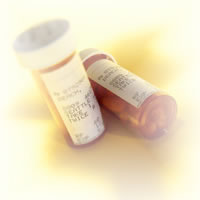
Anxiety disorders are serious medical illnesses that affect approximately 19 million American adults. These disorders fill people's lives with overwhelming anxiety and fear. Unlike the relatively mild, brief anxiety caused by a stressful event such as a business presentation or a first date, anxiety disorders are chronic, relentless, and can grow progressively worse if not treated. While both fear and anxiety can provoke an arousal response, their other effects diverge. Very intense fear sometimes serves to "freeze" the body to protect it from harm, causing little or no change in heart rate and blocking the impulse to move. In anxiety, the physical changes caused by arousal lead to a second stage marked by thought patterns such as worry, dread, and mental replays of anxiety-arousing events. Diet also can be a culprit. The most common dietary offenders are caffeine and caffeine-like substances found in coffee, tea, and many soft drinks. In sensitive individuals, the jitteriness precipitated by caffeine can reach panic levels. In rare cases, extreme vitamin deficiencies may also lead to anxiety. Many organizations today supports research into the causes, diagnosis, prevention, and treatment of anxiety disorders and other mental illnesses. Studies examine the genetic and environmental risks for major anxiety disorders, their course--both alone and when they occur along with other diseases such as depression--and their treatment. The ultimate goal is to be able to cure, and perhaps even to prevent, anxiety disorders.
full story
|

A hot flash is a feeling described as suddenly being hot, flushed and uncomfortable, especially in the face and neck. Hot flashes come in bursts or flushes that usually last a few seconds to a few minutes. They are caused by changes in the way blood vessels relax and contract and are thought to be related to the changes in a woman's estrogen levels. All postmenopausal women who have osteoporosis or are at risk of osteoporosis should take calcium and vitamin D supplements. The usual recommended supplemental dose is 1,000 milligrams of calcium carbonate (taken with meals) or calcium citrate daily. It is best to take this as 500 milligrams twice a day. Women also need 800 international units of vitamin D daily. PMS-sufferers are also frequently deficient in calcium, zinc and B-vitamins, particularly vitamin B6, and can often benefit greatly from supplementation. Many women accept premenstrual syndrome as a fact of life and merely suffer through it, but there are many natural remedies available to help prevent and treat the aches and pains of PMS. Like all health issues, it just takes the recognition that you can help control the way you feel by giving your body what it needs.
full story
|

You have to talk with your doctor and have a physical exam before you get any new medicine for the first time. Use only medicine that has been prescribed by your doctor or another trusted professional. Although medicines can make you feel better and help you get well, it's important to know that all medicines, both prescription and over-the-counter, have risks as well as benefits. For example, every time you get into a car, there are risks---the possibility that unwanted or unexpected things could happen. You could have an accident, causing costly damage to your car, or injury to yourself or a loved one. But there are also benefits to riding in a car: you can travel farther and faster than walking, bring home more groceries from the store, and travel in cold or wet weather in greater comfort. Ask your doctor always if there are interactions with any other medicines or dietary supplements (including vitamins or herbal supplements), beverages, or foods. Use the same pharmacy for all of your medicine needs, whenever possible. Ask your doctor if there is anything you can do to minimize side effects, such as eating before you take a medicine to reduce stomach upset. You always have to pay attention to how you are feeling; note any changes. Write down the changes so that you can remember to tell your doctor, pharmacist, or other health care professional.
full story
|
Read our other articles:
|